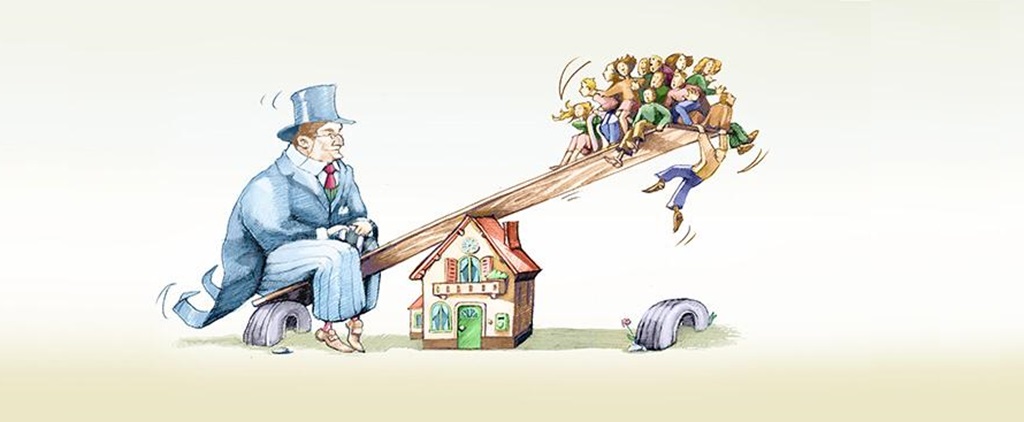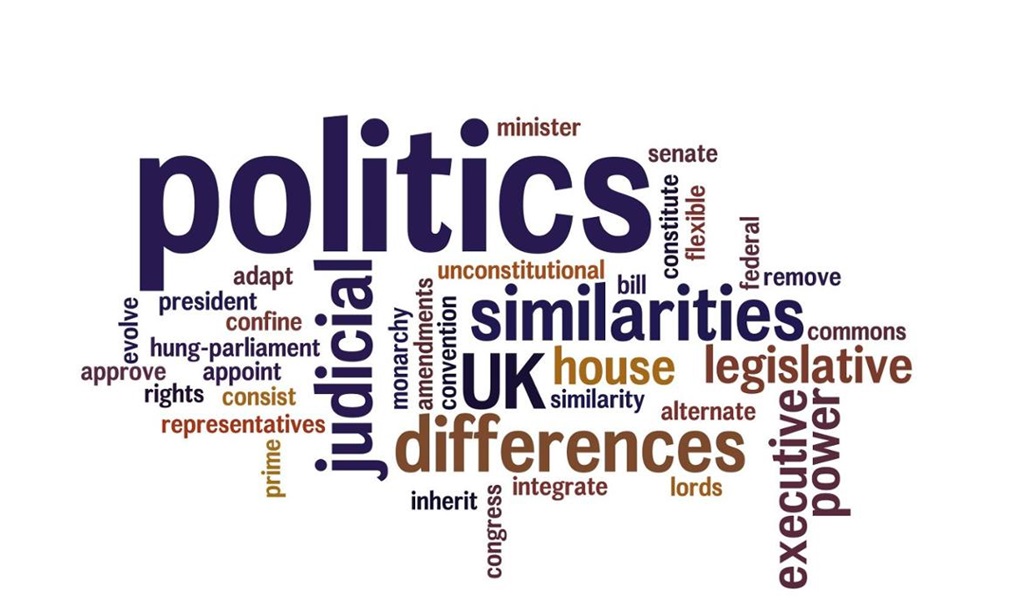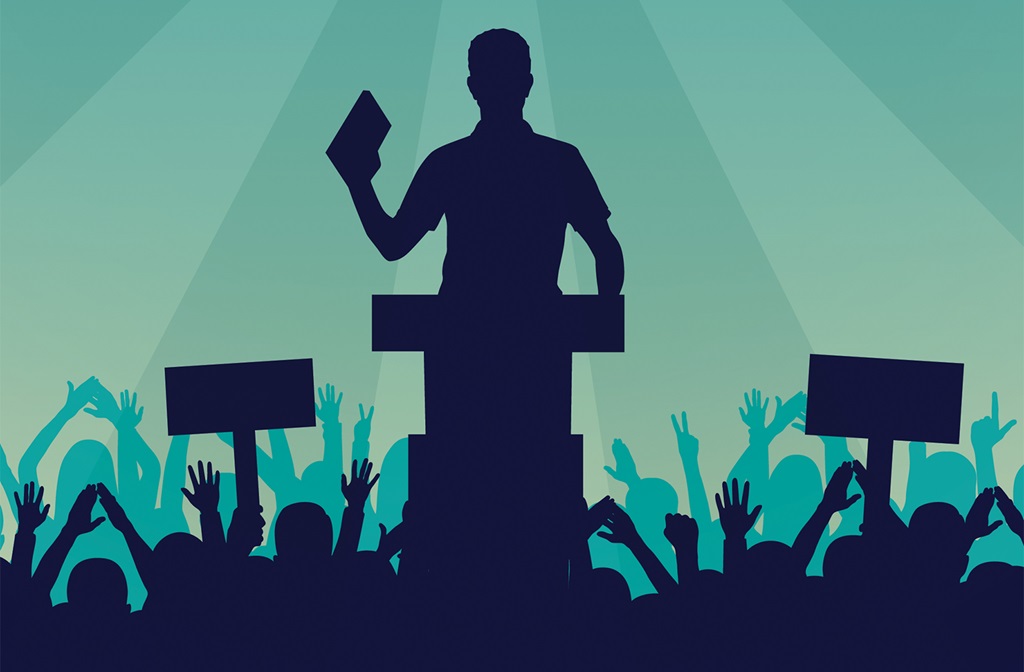Political theory is crucial for understanding how governments are formed, how they evolve, and how they affect the lives of citizens. At its core, political theory examines the concepts that underpin political systems like justice, rights, liberty, democracy, power, equality, and sovereignty. So, What are the importance of political theory? By studying political theory, we can gain insight into the government’s origins, purpose, and functions. Here are some of the critical reasons why political theory remains vitally important.
Defining Core Political Concepts
Political theory provides the intellectual framework for defining foundational political concepts like justice, freedom, rights, legitimacy, equality, and political obligation. Without political theory, these concepts would remain vague and indeterminate. For instance, political theorists have long debated the meaning of justice – arguing whether justice requires strict adherence to laws, fair distribution of resources, or maximizing human happiness. These conceptual debates are not just academic exercises – they shape how we design laws, policies, and institutions in the real world. Political theory supplies the basic vocabulary and analytic tools we need to make sense of politics.
Understanding the Purpose of Government
Political theorists ask fundamental questions about why humans create governments in the first place. Many argue that governments exist to keep people safe and maintain order. Others contend that governments should promote equality and justice. Political theory examines the different purposes attributed to government and evaluates their underlying assumptions. This investigation is crucial for determining the proper size, scope, and government activities. Without political theory, we would lack a moral understanding of the government’s central goals and responsibilities.
Evaluating Political Ideologies and Systems
Political theory provides the intellectual resources for critically assessing political ideologies like liberalism, conservatism, socialism, and nationalism. It also yields standards for evaluating specific government systems such as democracy, monarchy, oligarchy, and theocracy. Political theorists subject these ideologies and systems to rigorous moral and practical scrutiny. This type of analysis is indispensable for reforming flawed institutions and making wise political choices. Political theory allows citizens to judge political agendas and choose between policies and politicians.
Tracing the History of Political Thought
Studying the history of political thought allows us to understand the evolution of political ideas over centuries and across civilizations. It explains how seminal thinkers like Plato, Aristotle, Confucius, Machiavelli, Hobbes, Locke, Rousseau, Wollstonecraft, Mill, Marx, and Du Bois understood politics in their historical contexts. Tracing this intellectual history reveals both continuities and ruptures in political concepts. This dynamic historical perspective is crucial for making sense of contemporary political problems. The canon of political theory furnishes an intellectual tradition that guides and energizes modern debates.
Enhancing Democratic Citizenship
A robust understanding of political theory enhances the critical thinking skills required for engaged democratic citizenship. Political theories cultivate civic virtues like tolerance, public-spiritedness, prudence, civility, and respect for opposing viewpoints. By wrestling with complex theoretical arguments, citizens become more informed, reflective, and independent-minded participants in political life. Political theory supplies citizens with a depth of knowledge and appreciation of multiple perspectives that are prerequisites for deliberating over the common good. In this way, political theory undergirds a flourishing democratic public sphere.
Criticizing Structures of Power and Oppression
Political theorists often interrogate and challenge entrenched structures of power, exclusion, and oppression in society. By subjecting prevailing power relations to scrutiny, political theory highlights the perspectives of marginalized groups and provides moral grounds for emancipatory political projects. From feminist theory to critical race theory, these vital approaches within political theory spur demands for greater justice and expand conceptions of human dignity. Political theory supplies indispensable moral and analytical resources for identifying and overcoming systemic injustice.
Charting Alternatives and Possibilities
Political theory is futural and imaginative – it charts political alternatives that transcend existing realities. Theorists propose ideal models like John Rawls’ theory of justice, innovative institutional reforms, and even utopian visions of future societies. This aspect of political theory expands political horizons and offers fresh solutions to persistent problems. Political theory thus cultivates the creativity and appetite for experimentation that drives social progress. It provides vital ballast against inertia, cynicism, and unreflective acceptance of the status quo.
Clarifying Values and Commitments
Engaging political theory leads individuals to clarify their political values, ideals, and commitments. Coming to terms with the arguments put forward by various theorists compels readers to examine their assumptions and priorities critically. Wrestling with conflicting perspectives can help citizens articulate their own coherent political beliefs. This process of clarification, in turn, produces more self-aware, consistent, and thoughtful participation in political life. Political theory yields clarity and conviction regarding one’s principles.
Providing Intellectual Depth
The political theory adds philosophical depth, historical wisdom, and analytical rigor to contemporary policy debates. Abstract theoretical reflections enrich and contextualize the pragmatic discussions surrounding immediate political issues. Political theory supplies a long view – encouraging deliberation over fundamental values and first principles instead of just Opinions squabbling over ephemeral matters. This infusion of depth makes political discourse more meaningful and enlightened.
In summary, political theory is indispensable for comprehending political ideas and systems, guiding reforms, empowering citizens, realizing justice, imagining alternatives, and injecting ethical purpose into politics. The conceptual analysis and moral reasoning of political theory cultivate thoughtful citizenship and wise statecraft. Studying political theory enlightens, energizes, and elevates political life.
Critical Areas of Political Theory
Political theory is a vast field encompassing many topics and approaches.
Here are some of the significant areas of study and debate within political theory:
Justice
One of the central concerns of political theory is defining what constitutes a just society and determining the proper distribution of rights, resources, and burdens. Theorists like John Rawls, Robert Nozick, Michael Walzer, Iris Marion Young, and Amartya Sen have proposed competing theories of justice. Debates over justice continue to shape theories of fair inequality, just taxation, and economic justice.
Rights
Rights limit state power and protect individual autonomy. Political theorists discuss where rights come from, whether God-given or artificial, and debate hierarchies between different categories of rights. Theorists also examine threats to rights in the modern era coming from state coercion, technocratic governance, and Concentrations of private power.
Democracy
Democracy’s moral worth and practical feasibility are enduring themes in political theory. Theorists study the origins of democracy in Ancient Greece, its revival in the Enlightenment, and America’s constitutional design. Contemporary theorists consider populism, deliberative democracy, and cosmopolitan democracy. Defining democracy’s purpose, scope, and proper balance with other values remains contentious.
Liberty
Liberty is a core political value explored from many angles in political theory. Theorists examine tensions between negative and positive liberty and discuss whether true freedom requires economic independence. Debates over expanding liberty while upholding order, morality, and tradition persist. Freedom’s evolving meanings in contexts like the workplace, consumer society, and the Internet are also examined.
Equality
Equality has long been an aspirational political ideal. Theorists have explored equality from perspectives such as socioeconomic fairness, legal uniformity, and equal dignity regardless of identity. Persisting tensions between equality and liberty are probed. Egalitarian theorists also interrogate inequalities baked into capitalist political economy and social relations.
Community
Notions of community, belonging, and exclusion are central to political theory. Theorists examine bases for communal identity and solidarity, such as nationalism, religion, culture, language, and ethnicity. Debates persist between communitarian approaches emphasizing shared traditions and cosmopolitan perspectives stressing universal belonging.
Sovereignty
Sovereignty concerns supreme political authority and self-governance. Political theorists trace evolving notions of sovereignty from kings to the modern state to global governance. Debates center on where sovereignty should reside and how to balance it against principles like human rights. Theorists also examine popular sovereignty – locating supreme authority in “the people.”
Political Obligation
Political theorists ask why citizens must obey their government. Is political obligation based on implicit consent, benefits received, natural duty, or simply coercion? Anarchist theory rejects obligations to follow the state altogether. Debates also examine nonviolent civil disobedience grounded in Higher commitments.
Power
Political theory analyzes the power dynamics in society regarding class, gender, race, and other hierarchies. Theorists like Michel Foucault emphasize how power is diffuse, relational, and productive in shaping identities and bodies of knowledge. Critical theorists reveal power’s imprint on culture and institutions—debates center on balancing power and pursuing emancipation.
Ideology Critique
Thinkers like Marx, Adorno, and Althusser developed approaches for critiquing dominant political ideologies and unmasking their role in reinforcing structures of power and oppression. Recent theorists examine neoliberal and neoconservative ideologies, elite discourses, and marginalized knowledge. Ideology critique reveals the politics underlying purported “common sense.”
This overview demonstrates political theory’s depth and diversity in explicating core concepts, envisioning alternatives, and supplying critical perspectives on the status quo. Political theory’s interpretive debates foster civic education and empowerment.
Critical Political Theorists and Texts
Political theory has a long intellectual history with seminal texts spanning millennia. Understanding the canonical figures and writings provides the foundation for examining political questions.
Here are some of the foremost thinkers and texts within the political theory tradition:
Plato – The Republic
Written around 380 BCE, Plato’s Republic is one of the earliest works of political theory examining justice, forms of government, education, and the ideal city-state. Plato advocates rule by elite philosopher-kings restricted by virtues and training. The Republic profoundly shaped later theories of politics and justice.
Aristotle – Politics
Aristotle’s Politics (350 BCE) comprises lectures the philosopher delivered analyzing constitutions, property, citizenship, regimes, and the proper purposes of the state. Aristotle classified regimes into rule by one, few, and many, favoring a constitutional government and balancing elements of monarchy, aristocracy, and democracy.
Niccolò Machiavelli – The Prince
Machiavelli’s 16th-century masterwork The Prince broke with earlier moralistic texts, analyzing pragmatically how rulers retain and exercise power, advocating cunning and deception when necessary. Machiavelli is famous for saying that “the ends justify the means.” The Prince’s realism inspired later social contract theory.
Thomas Hobbes – Leviathan
Written during the English Civil War, Hobbes’ 1651 text Leviathan envisions an absolutist state to quell discord. Hobbes depicts a lawless “state of nature” where self-interested individuals battle for power and resources. Hobbes argues that individuals collectively cede authority to a sovereign holding absolute power to achieve peace.
John Locke – Two Treatises of Government
Locke’s Two Treatises (1689) helped inspire America’s revolution and constitutional order. Locke located governmental legitimacy in the consent of the governed and citizens’ rights to revolution against tyranny. Locke advocated separation of powers and argued the state exists to protect natural rights to life, liberty, and property.
Jean-Jacques Rousseau – The Social Contract
Rousseau’s 1762 work The Social Contract begins with the famous line, “Man is born free, and everywhere he is in chains.” Rousseau examined how individuals relinquish complete freedom by entering society. He theorized the ideal government rests on a voluntary social contract where people collectively self-govern through the “general will.”
Mary Wollstonecraft – A Vindication of the Rights of Woman
Wollstonecraft’s pioneering 1792 feminist text A Vindication of the Rights of Woman argues that the principles of liberty and reason in Enlightenment philosophy logically demand women’s equal rights. She contended women’s subordinate status stemmed from detrimental social conditioning, not innate inferiority.
Edmund Burke – Reflections on the Revolution in France
Burke’s conservative 1790 work Reflections on the Revolution in France decries the French Revolution’s radicalism. Burke argues change should build on society’s inherited wisdom and that institutions should evolve. Burke’s traditionalism and skepticism of abstract political theory influenced later theorists.
G.W.F. Hegel – The Philosophy of Right
Hegel’s 1821 text The Philosophy of Right analyzes the moral basis of the state, law, civil society, family, poverty, and world history’s progress. Hegel conceptualized the state as manifesting communal ethical life and spiritual freedom. Marx later inverted Hegel’s dialectical idealism into dialectical materialism.
Karl Marx – The Communist Manifesto
Marx and Engels’ 1848 pamphlet The Communist Manifesto outlined a new theory of class struggle, materialist history, ideology, revolution, and post-capitalism. It powerfully inspired socialist movements across the world. The Manifesto’s class-based critique of capitalism and exploitation remains enormously influential in political theory.
John Stuart Mill – On Liberty
Mill’s essential 1859 essay On Liberty argues for maximal individual freedom of thought and action, limited only by prohibiting harm to others. Mill contends that liberty enables human progress, thatt free expression, even “heretical” views, should never be suppressed, and that liberty profoundly shaped modern liberalism.
This overview demonstrates the diversity of perspectives and historical contexts shaping canonical political theory. Studying the great works equips citizens to analyze politics and envision change.
Contemporary Debates in Political Theory
While political theory examines enduring questions, it also engages deeply with contemporary issues and recent events. Political theorists are active in current policy debates concerning technology, economic justice, identity, migration, etc. Here are some critical contemporary discussions:
Revival of Socialist Theory
Socialist theory has undergone a revival, given rising economic inequality. Theorists like Chantal Mouffe, David Harvey, and Wendy Brown link neoliberal capitalism to crises in democracy and climate. They argue socialist values and objectives remain relevant but require reinventing, given 20th-century failures.
Interrogating Liberalism
Thinkers like Charles Mills and Aziz Rana have interrogated racism, imperialism, and inequality embedded in liberalism despite its egalitarian ideals. Meanwhile, theorists like Michael Sandel contend that hyper-individualist strands of liberalism corrode community and moral foundations—debates center on reforming liberalism or moving beyond it.
Identity Politics and Multiculturalism
Identity politics based on race, gender, sexuality, and more has prompted debates between theorists advocating diversity and pluralism (Charles Taylor, Will Kymlicka) and critics who argue identity politics fractures universality, fuels tribalism, and undermines discourse ethics (Jurgen Habermas).
Technology and Politics
Theorists like Langdon Winner, Frank Pasquale, and Evgeny Morozov examine how technologies encode values, empower elites, threaten privacy, enable surveillance, and shape politics and cognition in concerning ways—debates center on fostering just and democratic technology governance.
Cosmopolitanism vs. Nationalism
Cosmopolitan thinkers like Jeremy Waldron and Kwame Anthony Appiah extol universal belonging, shared humanity, and global cooperation against resurgent nationalism. However, nationalist theorists argue that transnational governance and flows erode community, tradition, and local autonomy.
Civil Disobedience
Recent protest movements have revived interest in civil disobedience. Theorists examine philosophical justifications for breaking unjust laws grounded in Higher commitments. Debates weigh civil disobedience’s reasonableness and impact in contexts from climate change to police brutality.
Populism’s Rise
Theorists examine recent populist stirrings in multiple countries as backlashes against technocratic elites, economic precarity, and cultural change. Thinkers debate populism’s implications for constitutionalism, rights, democracy, and pluralism. Left-wing theorists discuss channeling populist zeal for more emancipatory ends.
Non-Western Political Thought
Political theorists increasingly recognize intellectual contributions outside the Western canon. Thinkers examine African political philosophies, Islamic political thought, Chinese legalism and Confucianism, and decolonized theory. Integrating diverse traditions expands and enriches political theory.
Contemporary political theory furnishes critical tools for understanding today’s evolving challenges. It combines enduring wisdom with creative, counter-hegemonic perspectives on current crises and possibilities.
In Summary
Political theory is vital for comprehending core political concepts, analyzing power relations, tracing the evolution of political thought, inspiring activism, envisioning alternative futures, and providing ethical direction for society. The Political theory’s normative reasoning and moral imagination help citizens consider what should be, not just what is.
Political theory cultivates wisdom, enhances democratic participation, furthers social progress, upholds human dignity, and realizes freedom, equality, and justice for all. Political theory’s ability to clarify values, evaluate alternatives, and critically examine society remains essential. Though often considered an abstract academic pursuit, political theory yields genuine benefits for civic empowerment and engaged citizenship.
Frequently Asked Questions
What are the primary methods used in political theory?
The political theory employs conceptual analysis of key ideas, normative moral reasoning regarding ideals like justice and rights, historical examination of political thought’s evolution, textual interpretation of canonical works, and critical ideological analysis of power relations.
How does political theory relate to political science?
While political science uses empirical data to explain political phenomena, political theory relies more on philosophical argumentation to normatively evaluate politics. The two fields are complementary – political theory provides foundational concepts and critiques, while political science grounds theory in data.
What academic disciplines intersect with political theory?
Political theory draws on moral and political philosophy, history, law, sociology, anthropology, economics, cultural studies, literature, and more. It is highly interdisciplinary. Political theorists apply critical perspectives from diverse fields to political questions.
Who are some contemporary political theorists?
Influential living political theorists include Judith Butler, Amartya Sen, Martha Nussbaum, Charles Taylor, Michael Sandel, Cornel West, Kwame Anthony Appiah, Robert Nozick, Slavoj Zizek, Alasdair MacIntyre, Anthony Giddens, Jurgen Habermas, Wendy Brown, Iris Marion Young, and Amia Srinivasan.
How does political theory relate to activism and political change?
Political theory provides inspiration, intellectual foundations, and moral urgency for political activism and social movements. By articulating ideals, criticizing injustices, and envisioning alternatives, political theory spurs demands for real-world reforms.
What skills does studying political theory develop?
Studying political theory fosters skills in analytical reasoning, moral reflection, critical reading, argumentative writing, public speaking, conceptual clarity, ideological critique, and normative assessment of complex real-world problems.
How does political theory enhance democratic participation?
Political theory deepens citizens’ understanding of democracy and equity, cultivates reasoning skills and civic virtues, teaches ideological awareness and tolerance, and motivates activism, empowering citizens to engage democratically for the common good.







